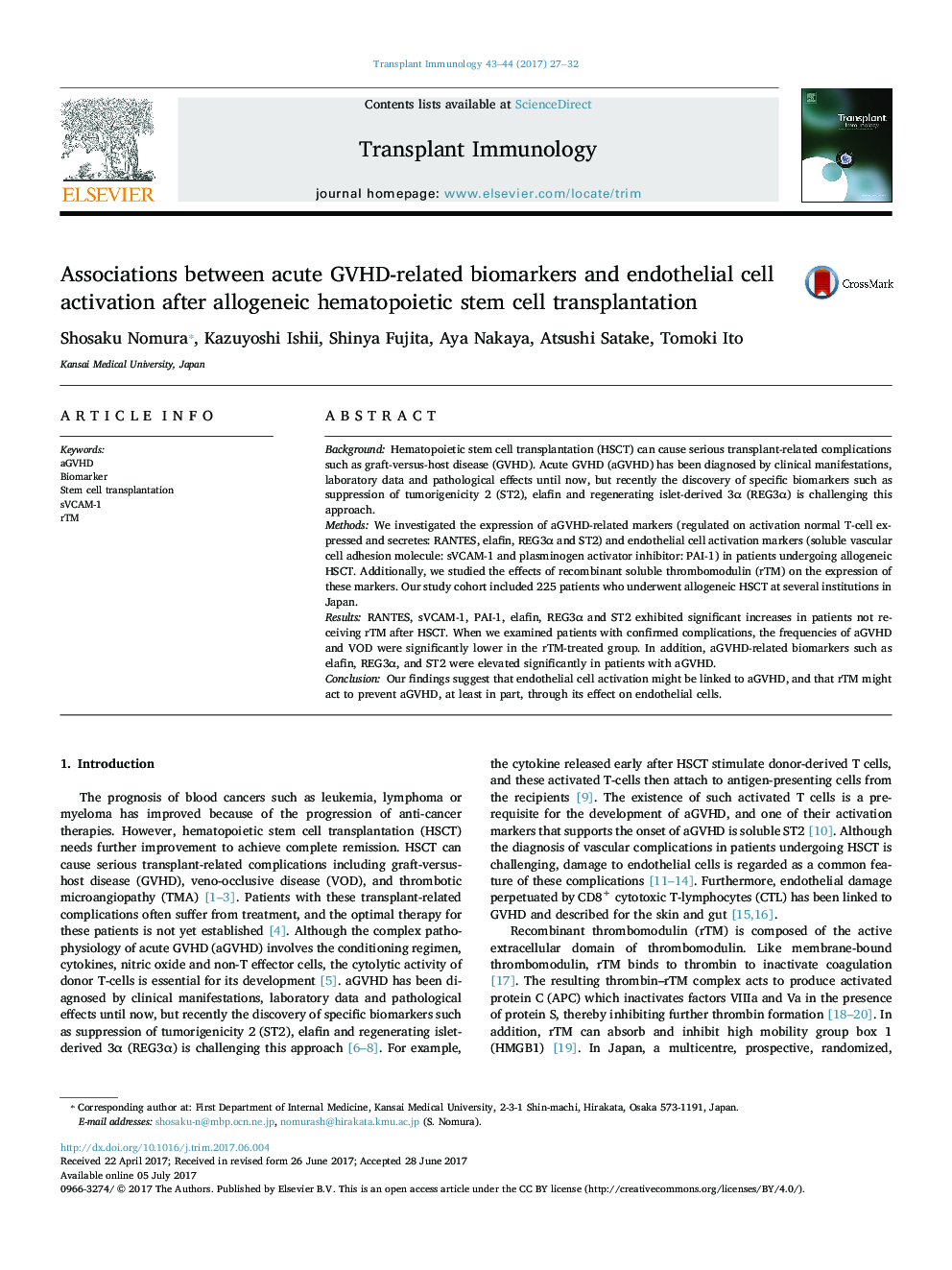| Article ID | Journal | Published Year | Pages | File Type |
|---|---|---|---|---|
| 5670437 | Transplant Immunology | 2017 | 6 Pages |
BackgroundHematopoietic stem cell transplantation (HSCT) can cause serious transplant-related complications such as graft-versus-host disease (GVHD). Acute GVHD (aGVHD) has been diagnosed by clinical manifestations, laboratory data and pathological effects until now, but recently the discovery of specific biomarkers such as suppression of tumorigenicity 2 (ST2), elafin and regenerating islet-derived 3α (REG3α) is challenging this approach.MethodsWe investigated the expression of aGVHD-related markers (regulated on activation normal T-cell expressed and secretes: RANTES, elafin, REG3α and ST2) and endothelial cell activation markers (soluble vascular cell adhesion molecule: sVCAM-1 and plasminogen activator inhibitor: PAI-1) in patients undergoing allogeneic HSCT. Additionally, we studied the effects of recombinant soluble thrombomodulin (rTM) on the expression of these markers. Our study cohort included 225 patients who underwent allogeneic HSCT at several institutions in Japan.ResultsRANTES, sVCAM-1, PAI-1, elafin, REG3α and ST2 exhibited significant increases in patients not receiving rTM after HSCT. When we examined patients with confirmed complications, the frequencies of aGVHD and VOD were significantly lower in the rTM-treated group. In addition, aGVHD-related biomarkers such as elafin, REG3α, and ST2 were elevated significantly in patients with aGVHD.ConclusionOur findings suggest that endothelial cell activation might be linked to aGVHD, and that rTM might act to prevent aGVHD, at least in part, through its effect on endothelial cells.
